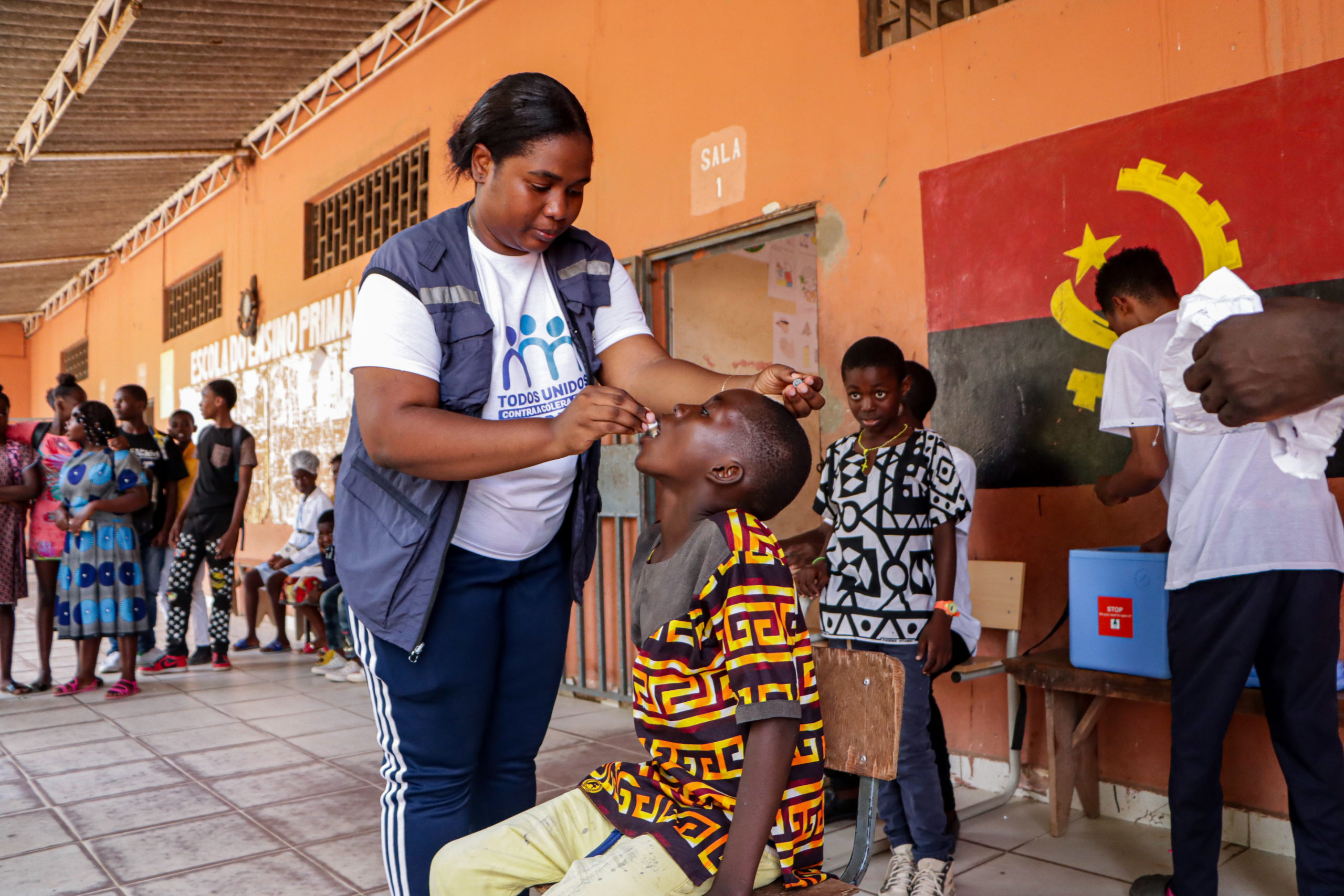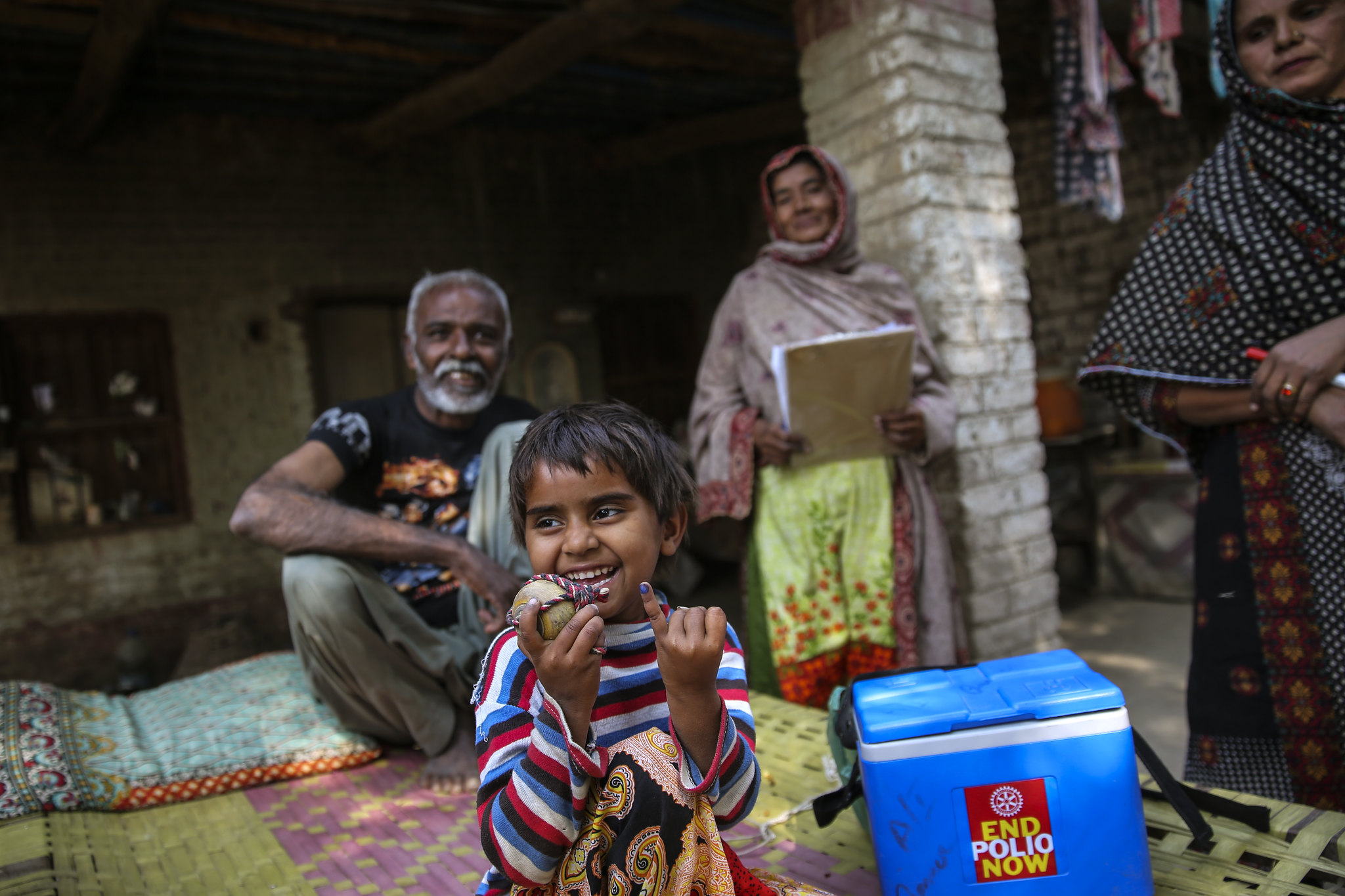
27 May 2013, Geneva, Switzerland – Global health ministers attending the World Health Assembly acknowledged the progress achieved in the past year in bringing polio to its lowest ever levels, thanks to actions of Member States in placing polio eradication on an emergency footing. Delegates endorsed the new Polio Eradication and Endgame Strategic Plan 2013-2018 [pdf] to secure a lasting polio-free world and urged for its full implementation and financing.
At the same time, the Assembly received stark warning of the on-going risk the disease poses to children everywhere, with confirmation of a new polio outbreak in the Horn of Africa (Somalia and Kenya).
Noting the generous pledges made to support polio eradication at the Global Vaccine Summit, delegates urged donors to rapidly convert these pledges into contributions. The WHA pointed out that this funding was critical for accelerated implementation of the Plan, given the complexity and scale of introducing inactivated polio vaccine worldwide.
“We urge all member states and the broader global community to maximize their political and financial support to provide the remaining US$1.5 billion needed,” commented Carl-Wilhelm Stenhammar of Rotary International, the private sector arm of the Global Polio Eradication Initiative. “Recent success reaffirms the feasibility of a polio-free world and offers lessons that will benefit a wide range of health initiatives long after polio is gone. We ask for your continued commitment to achieve that goal and ensure no child ever again is paralysed by polio.”
Health ministers called on all countries to do more to protect frontline health workers everywhere, and ensure access to all children no matter where they live. Deadly attacks on health workers occurred in some parts of Pakistan (in December) and Nigeria (in February), and the Assembly praised the dedication and heroism of health workers everywhere. “Insecurity continues to compromise the eradication effort,” said Dr Margaret Chan, WHO Director-General. “We mourn the many polio workers who have lost their lives trying to deliver vaccines.”
Health ministers noted the impact of national emergency action plans being implemented in the last three remaining endemic countries – Nigeria, Pakistan and Afghanistan – as more children are being vaccinated for the first time in traditional reservoir areas.
In the wake of the Horn of Africa outbreak and the continuing risk of further spread of polio, delegates discussed the need to revisit strong enforcement of vaccination of travellers to and from infected countries, including through a potential standing recommendation of the International Health Regulations (IHR), the only international health treaty on communicable diseases.
Finally, the Assembly noted the measures being put in place to ensure that once eradicated, the disease will not be reintroduced. Such measures include the phased removal of oral polio vaccines (OPV), universal introduction of affordable inactivated polio vaccine (IPV) in routine immunization programmes and the implementation of necessary biocontainment activities of laboratory stock. These strategies, the delegates underscored, do not just affect the remaining polio-infected countries, but in fact have significant implications for all countries around the world.



